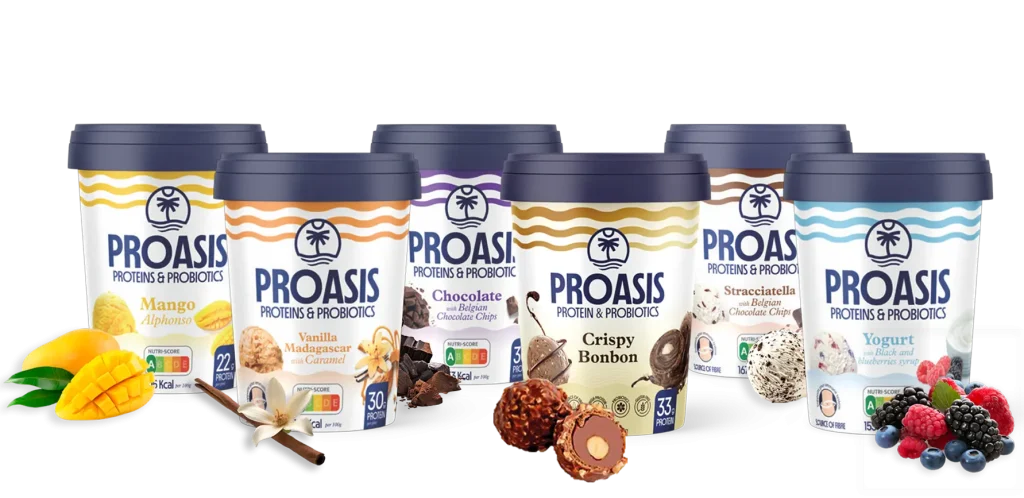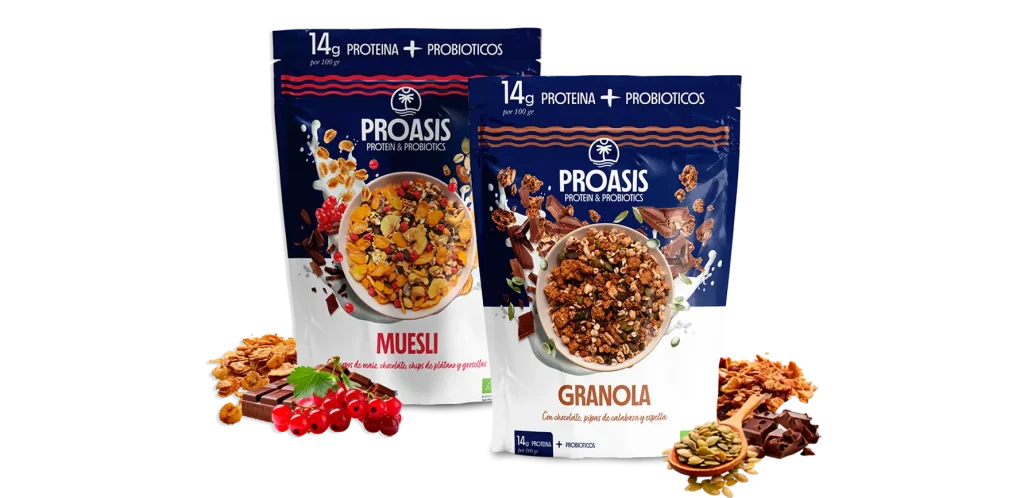Do you know the benefits of probiotics for digestive health? The gut flora plays a fundamental role in our overall well-being and in the functioning of the digestive system. Eating probiotics helps keep it balanced and improves its function over the long term. Here are the details.
The importance of digestive health
The proper functioning of the gastrointestinal system has a direct impact on overall well-being. When our digestive health is good, we efficiently absorb the essential nutrients our body needs and our immune system is strengthened, so we suffer fewer illnesses.
In addition, a healthy digestive system helps improve your quality of life and frees you from discomforts such as bloating, constipation, or diarrhea.
To achieve this, you need to maintain a balanced gut flora, which is greatly supported by adopting proper eating habits—especially regular probiotic intake.
Probiotics for digestive health: your allies for gut well-being
Consuming probiotics as a family is a very healthy habit you should adopt as soon as possible. Wondering how to improve health with probiotics? Make no mistake: they are indispensable companions for keeping your gut healthy.
These microorganisms help balance the gut flora. By populating your gut with beneficial bacteria, probiotics help prevent imbalances that can lead to digestive problems.
They have also been shown to have positive effects on nutrient absorption and the production of certain essential vitamins. Their positive action goes beyond the digestive system, as probiotic consumption has also been linked to improvements in skin and mood. Regularly incorporating probiotics into your diet is a key strategy to maintain a healthy gut and support overall well-being.
Gut flora and probiotics
It’s worth highlighting the strong relationship between gut flora and probiotics. Also known as the intestinal microbiota, this gut flora plays a fundamental role in digestive health. Probiotics are live microorganisms which, when consumed in adequate amounts, benefit it.
Their positive influence mainly lies in strengthening and diversifying that gut flora. The outcomes are very favorable: improved digestion, prevention of gastrointestinal disorders, and better nutrient absorption.
Long-term benefits of probiotics
We’ve already discussed some advantages of adding probiotics to our diet, especially the reduction of stomach discomfort such as bloating and heartburn.
Additionally, probiotics have shown positive effects in preventing gastrointestinal diseases, thus contributing to better long-term health. When taken correctly, they offer other proven benefits:
- Reduce and curb intestinal diseases.
- Increase the production of macrophages, the cells responsible for defending the body.
- Regulate intestinal transit.
- Combat obesity, high cholesterol, and hypertension.
- Prevent food allergies and intolerances.
- Lower the incidence of conditions such as cancer, candidiasis, hemorrhoids, and urinary tract infections.
- Enhance nutrient absorption—mainly iron, calcium, and B vitamins.
- Improve mood and reduce issues related to depression and anxiety.
Given these long-term benefits of probiotics, don’t you think you should regularly include probiotic-rich foods in your diet?
Research on the relationship between probiotics and gastrointestinal health
Various scientific studies have shown a close relationship between probiotics and gastrointestinal health. International research has provided objective data recommending the inclusion of probiotics in the diet to promote a proper balance of gut flora; that is, their direct relationship with the good functioning of the digestive system.
It has also been observed that probiotics help reduce intestinal inflammation, improve nutrient absorption, and strengthen the intestinal barrier.
Likewise, results support better muscle recovery with probiotics, their influence on body weight control, and the reduction of constipation.
Strategies to optimize digestion with probiotics
Want to improve your digestive health? The action plan is clear: add probiotic-rich foods to your daily diet. To do so, it’s best to follow these strategies and habits:
- Start consuming plain yogurt, sauerkraut, kimchi, or kefir regularly, as they are natural sources of probiotics.
- Choose and take high-quality probiotic supplements that contain specific strains of these beneficial bacteria to improve digestive health.
- Combine probiotics with prebiotics, such as the soluble fiber found in fruits, vegetables, and legumes
- Explore our Proasis product catalog and find excellent foods to enjoy the long-term benefits of probiotics. We offer ice creams with delicious flavors and superb, healthy cereals such as granola and muesli.
What do you think? Clearly, the benefits of probiotics for digestive health are many and varied, both in the short and long term. Start taking them and ensure continuous improvement in your health and overall well-being.
Image









